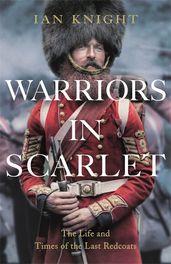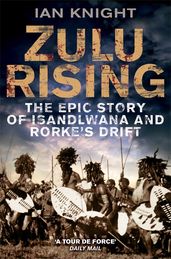Synopsis
Ian Knight's Warriors in Scarlet is a comprehensive and stirring history of the Victorian army between 1837 to 1860, from the Battle of Bossendon Wood to the Crimean War, a period of seismic change.
An acclaimed military historian, Knight draws on first-hand accounts to show us the reality of life for the British soldier in this era – the drudgery of peace-time service, the excitement and privations of posting overseas, the floggings and desertions, the regimental pride and comradeship. The rapid expansion of the empire saw the army fighting in small wars across the world and Knight reveals the brutal reality of this colonial conflict from both sides. British soldiers trained in tactics that had beaten Napoleon were forced to adapt when faced with warriors with very different skills fighting on their home ground.
Knight vividly recreates the action, from bloody skirmishes in Southern Africa and siege warfare in New Zealand to disasters like the 1842 retreat from Kabul and Chillianwalla in the Punjab – but shows that in reality the army won more than four-fifths of the battles they fought in this era. He describes how, by 1860 with their redcoats increasingly replaced by khaki, the British army was a more professional, efficient and increasingly ruthless fighting force.
'Impressively researched and highly readable analysis' – Tony Pollard, Professor of Conflict History and Archaeology, University of Glasgow
Details
Reviews
Ian Knight has long been an outstanding military historian of the nineteenth century, and here he mobilizes all his experience in an impressively researched and highly readable analysis of those British soldiers who served in all the corners of Queen Victoria’s empire . . . he paints vivid but also nuanced portraits not just of the men who took the Queen’s shilling, but also those who faced them on the battlefield, where at times they delivered devastating defeats against Victoria’s red-coated warriors
Ian Knight masterfully shows that history might appear well-ordered when looking back at events, but at the time those events are disjointed, chaotic and often contradictory. Above all, he is to be commended for telling the heart-warming and heart-wrenching stories of the ordinary British soldiers, escaping rural and industrial poverty and thrown into conflicts in distant lands.

